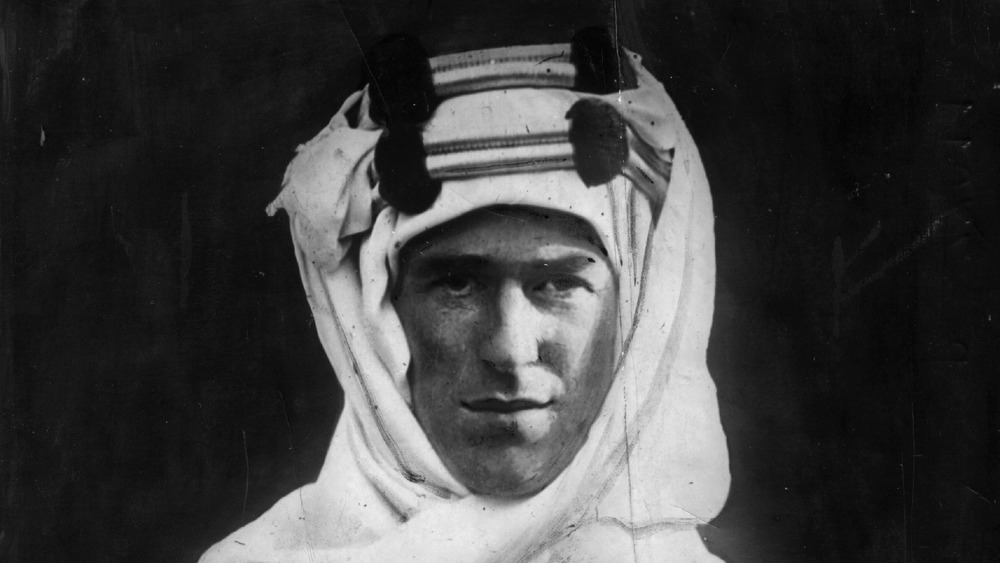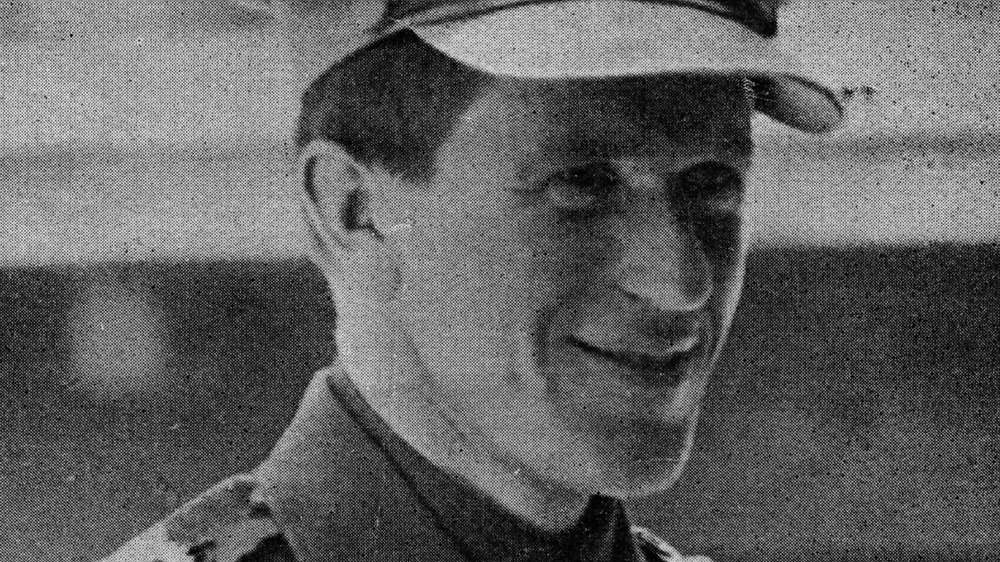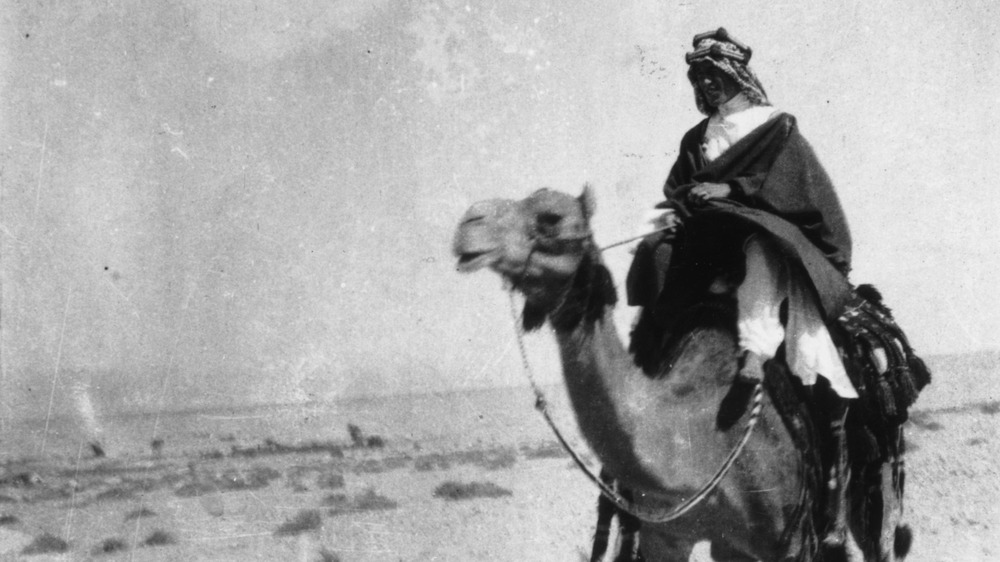The Tragic Death Of Lawrence Of Arabia
T.E. Lawrence lived a life worthy of a movie – more than one, actually. He was an archaeologist, writer, and a freedom fighter who created a bond with the Arabs during World War I. His life had been marked by tragedy, something that followed him until his untimely death at 49. The accident that took his life, however, raised many questions.
Lawrence of Arabia, so-called because of his exploits in what is now Saudi Arabia and other regions, had helped mobilize Arabians during the Arab Revolt against the Ottoman Empire. He had been an archaeologist in the Middle East before the British Army tapped him as an intelligence officer during World War I. According to the Imperial War Museum, Lawrence signed up in 1914. He mainly functioned as a liaison and map officer and sat behind a desk most of the time. After two of his brothers died on the front lines in 1915, he sought a more active role in the war.
He got his chance when the tide had begun to turn against the Ottoman Empire. While the British traditionally supported the empire, they turned their backs on the Ottomans, who had declared support for Germany. Arabs wanted their independence from the Ottomans and took advantage of the world's chaos to begin rebelling. The British Army dispatched Lawrence to see which son of the revolt's leader would be the best leader. Thus began his support for King Faisal and the Arab people.
He became a celebrity
Lawrence helped lead some of the skirmishes against the Ottoman Empire, developing successful guerrilla warfare tactics that are studied to this day. He abandoned Western dress and adopted the flowing robes worn by men in the Middle East. Smithsonian Magazine explained he did so because he didn't like wearing his stuffy military uniform, and to show his support for and solidarity with the Arabs.
Efforts to fight the Ottoman Empire proved somewhat successful, and Lawrence found himself a permanent liaison to King Faisal. Ultimately, however, Lawrence found the British government uninterested in giving the Arabs their independence. By this time, Lawrence had become a celebrity, wrote the BBC, thanks largely to an American journalist who heavily featured his image, dressed in Bedouin clothing, in his dispatches.
After the war, Lawrence, who became an adviser to Winston Churchill, was desperate to return to the army. He enlisted in the Royal Air Force under a pseudonym but was kicked out once the ruse was discovered. He later rejoined under his real name in 1925. Lawrence continued to serve for the next 14 years, once again, mainly in desk jobs as a means to escape the constant press intrusion in his life.
He left the service in 1935 and had hoped to retire to the rural property he bought years before. The house, called Clouds Hill, was a place where he could hide from all the attention. But, just two months after retiring, Lawrence died in a motorcycle accident.
He could've had PTSD
On May 13, 1935, Lawrence was riding his motorcycle in Dorset near his beloved Clouds Hill. As he rode, he did not notice two boys on their bicycles coming at him. He swerved and flew over his handlebars, suffering severe injuries. Lawrence died of those injuries six days later.
Many believed it was merely an accident. It's the sort of thing that can happen even to experienced riders. But it may not have been an accident. NPR reported that Lawrence might have been depressed and suffering from what we know call post-traumatic stress disorder (PTSD). During the height of his fame, he frequently isolated himself and cut off friends. Lawrence repeatedly said he just wanted to leave his past, especially his Arab period, behind. Smithsonian Magazine noted his self-isolation also extended to his family. The decision to retire from the military, the family he'd chosen for himself, filled him with dread.
Based on a letter Lawrence wrote to a friend just a few days before his motorcycle crash: "At present, the feeling is mere bewilderment. I imagine leaves must feel this after they have fallen from their tree and until they die. Let's hope that will not be my continuing state."
This led to questions about his death. Did he intentionally swerve so violently? There are no sure answers. As tragic as his death was, Lawrence was still able to help others. His death is one of the reasons motorcycle helmets are required today.


